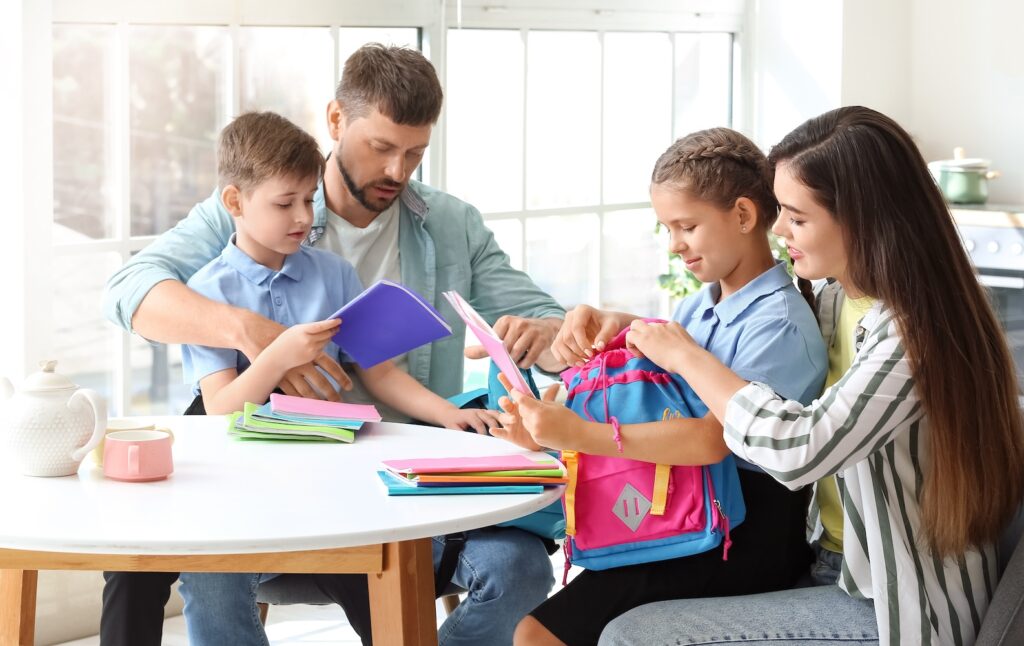Hybrid schools guarantee parental involvement in their child’s education
How many public schools, and even traditional private schools, are scratching their heads trying to find ways to make sure parents are involved in their child’s education?
It’s easier…

How many public schools, and even traditional private schools, are scratching their heads trying to find ways to make sure parents are involved in their child’s education?
It’s easier in private school, where parents are naturally more invested because they are paying tuition. But while there are no sure things – a paid-for student can have uninvolved parents, just as a public-school student can have involved parents – a hybrid school offers a near guarantee of parental participation in their child’s learning.
I taught in a hybrid school. It was a four-day-a-week school with the fifth day at home with extra assignments. Even in that environment, and it was a Christian school, there were times I would work with a child and think, “I hope their parents reinforce this with them at home.”
Sometimes it would be a disciplinary or behavioral issue. I sent many emails asking mom and dad to intervene or go over with their child why certain behaviors weren’t appropriate in school, or to emphasize the need to respect the teacher and not talk in class and follow instructions. (It was middle school, although some kids were stuck in elementary mode.)
Again, in this private Christian environment, parents were mostly amenable and ready to get involved. The school even required a certain amount of parent volunteer hours to guarantee their presence in the school (though parents could pay a small fee to have someone else take their hours if they were unwilling or unable).
What this arrangement did was ensure parents had a firsthand look at the school, an invitation to participate in it and more time with their student thanks to the Friday school-at-home plan.
It didn’t always yield perfect results, but at least parents were usually in the loop when there was a problem.
Sometimes a parent and I would scratch our heads together, lamenting the challenges of a particular class, say a short prayer and try to implement changes. We didn’t solve everything, but I found most parents able to accept that there were problems because they’d likely noticed them during their time at school or with their child at home.
This contributed to a greater sense of empathy, reinforcement and collective problem solving. The school definitely ran on a cooperative approach.
The flexibility was great for families that wanted to take long weekend vacations or tailor their student’s workload to the family’s schedule. I even had some parents pull their child out of a class such as history and opt to teach it to them at home, because home instruction time was already there.
My wife and I took classes to become foster parents a few years ago. The course went through many modules, such as the trauma children face and the challenges of blended families. At the end of each class was a quote: “The single biggest factor in a child’s success is the involvement of caring adults,” or something to that effect.
No matter all the training we received, the course drove home the importance of parents (even foster parents) taking an active role in the child’s life.
I think some public-school personnel realize this. Not all of them support the government monolith that “we raise and educate your child apart from you.” There are some schools that welcome parental involvement and provide multiple avenues for them to do so (not every district is arresting parents who speak up at school board meetings, although you hear about the worst ones on the news, including here on The Lion).
Even so, while well meaning, the public schools themselves, and the traditional five-day-per-week model, don’t readily lend themselves to a natural partnership with parents.
Christian school advocates point to the sheer number of hours children spend at school, compared to how much time they spend with mom and dad. The imbalance is staggering! Time in a system tends to produce children that agree with the beliefs of that system, even tacitly.
Maybe the problem in education is not a lack of interest by parents, but a system and structure that is designed to function without them.
Since public schools have a mission to educate children whether or not their parents are involved, they by definition must be able to function without much input from parents. This is a sad, but brutal, reality. The growth in services and programs offered through the public schools attests to this.
Now enter the hybrid school.
From its foundation, the school is set up to co-educate with parents, since students are in the building less than five days a week.
Most schools are small, and commonly call on parents to teach classes, volunteer or perform other functions at the school.
Even parents who don’t get involved must attend to their children during their at-home days, helping them learn and guiding them through life. One family I know has teenage boys who work during some of their off days, as long as they get their schoolwork done at other times.
What we see here is a beautiful school-home partnership, which restores aspects of what education used to be in this country.
Instead of a behemoth designed to churn out student after student, the hybrid model allows parents to customize their child’s education and be involved in it as much as they desire.
This also happens in homeschooling and in homeschool co-ops, which are a form of hybrid school.
This approach fosters innovation. Since not every parent is skilled in teaching every subject, parents are forced to be creative and involved in helping their children navigate subjects that are difficult for them.
For instance, a homeschool mom who never took advanced math may call on a friend or another parent in their co-op to help her struggling child. Innovation and flexibility are good things, and good skills for children to see modeled.
Parents don’t have all the answers, but neither do schools.
That’s why hybrid schools can be one of the most effective models.
Children do better with involved parents. The same is true for their education.



